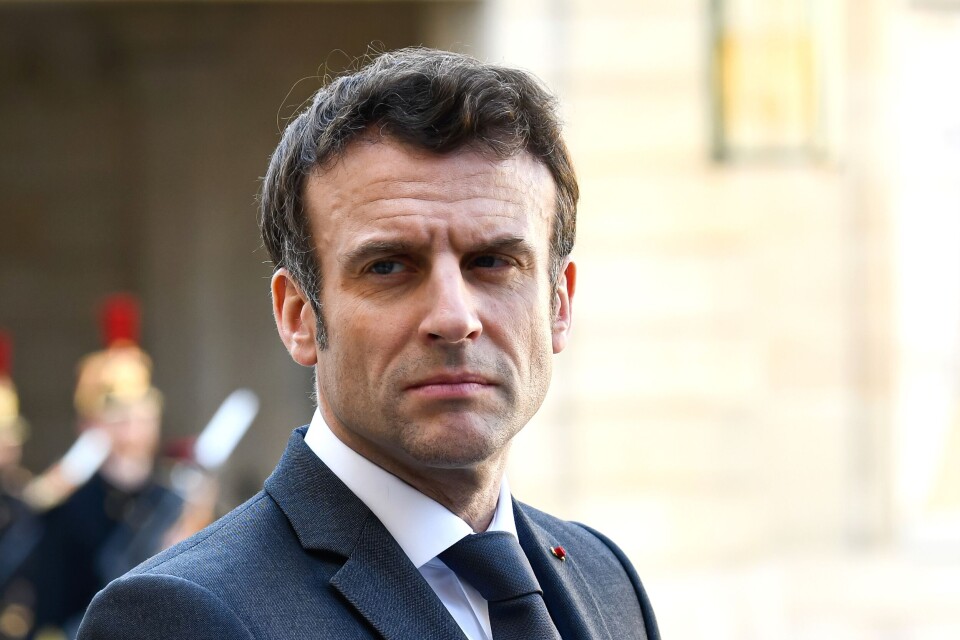-
New luxury Paris-Amalfi sleeper train service
Three-day Orient-Express trip includes hotel stays and Pompeii visit among other excursions
-
Why you can contest a speeding fine when driving to Italy from France
A new initiative has discovered that the majority of Italian speeding fines may be legally void
-
France’s Favourite Village 2026 shortlist announced
You can vote for your favourite until early March
‘We must learn to govern differently’: Key points of Macron’s TV talk
The president has thrown the ball back into the oppositions’ court requesting their position on policies in his first address since failing to win an absolute majority in parliament

French President Emmanuel Macron has said that the government will have to “learn to govern and legislate differently” after his coalition failed to win an absolute majority in the legislative elections - a rare event in France - on June 19.
His comments came in a short, televised speech aired yesterday night (June 22), the first time he has acknowledged the results of the MP elections.
His Ensemble ! alliance claimed 245 seats, short of the 289 needed to ensure that bills can be passed through the lower house of parliament, the Assemblée nationale, without backing from opposition parties.
Read more: Macron misses out on absolute majority in French legislative elections
In most cases only a majority of those present in the chamber at the time of the vote is needed for bills to pass, meaning it is rare that all 289 votes are required. But Mr Macron’s lack of absolute majority is still expected to cause problems, with many political experts predicting that his plans for reforms to pensions or other constitutional changes will be stalled.
Mr Macron last night ruled out forming a ‘gouvernement d'union nationale’, a concept whereby MPs from across the political spectrum are invited to form a government.
He also ruled out a coalition with another party.
The right-wing Les Républicains (LR), which, along with centre-right partner UDI has 64 seats, are considered to be the closest thing to a natural ally for Mr Macron. But LR head Christian Jacob has already ruled out working with Ensemble!.
Instead, Mr Macron said that MPs would need to “build compromises”.
He said that there were “deep divisions running through our country that are reflected in the composition of the House” and also acknowledged the low voter turnout, which he said “cannot be ignored”.
“No political force can today make laws alone, as in most Western democracies,” he said.
Mr Macron, essentially throwing the ball into the opposition’s court, called on other parties to state their positions on policies so that they could work out where compromises could be made.
“It will have to be clarified in the next few days how much responsibility and cooperation the different formations in the Assemblée nationale are prepared to take,” he said
“It is now up to the political groups to say in all transparency how far they are prepared to go.”
Mr Macron faces two large opposition blocks in the lower house: the left-wing coalition Nupes, which won 131 seats, and Marine Le Pen’s far-right Rassemblement National (RN), which went from eight MPs elected in 2017 to 89 this year – a record high for a far right party in France.
Read more: MAP: Which areas of France have elected the 89 new far-right MPs?
Read more: ‘Why I’d have moved if my area of France voted in a far-right MP’
The French president is now set to depart for a string of international engagements, including a European Council meeting that takes place today and tomorrow (June 23 and 24).
But he promised that he would get to work with opposition parties “building a new method and structure” of governing as soon as he returned.
During the speech Mr Macron also mentioned the need for emergency measures this summer to “respond to the needs of the people”. This includes laws on spending power, energy, climate and health.
Read more: Will Macron dissolve parliament over MP loses? Two experts give views
Read more: French election fallout: Macron refuses to accept PM’s resignation
The relative majority of 1988
The last time a French president failed to win an absolute majority in the Assemblée nationale was in 1988 when François Mitterrand, who, like Mr Macron, had just been re-elected president, fell 14 seats short.
The left-wing government at the time got by relying on abstentions from other MPs to push laws through.
Mr Macron’s job today will be far harder, needing to find support from potentially 44 opposition MPs.
In 2017, Mr Macron’s party and one coalition partner won a combined 350 seats, far more than is needed to get laws through the lower house without much opposition interference.
Related articles
Macron to make TV speech tonight following legislative elections
MP elections in France: what are key policies of leading coalitions?
























